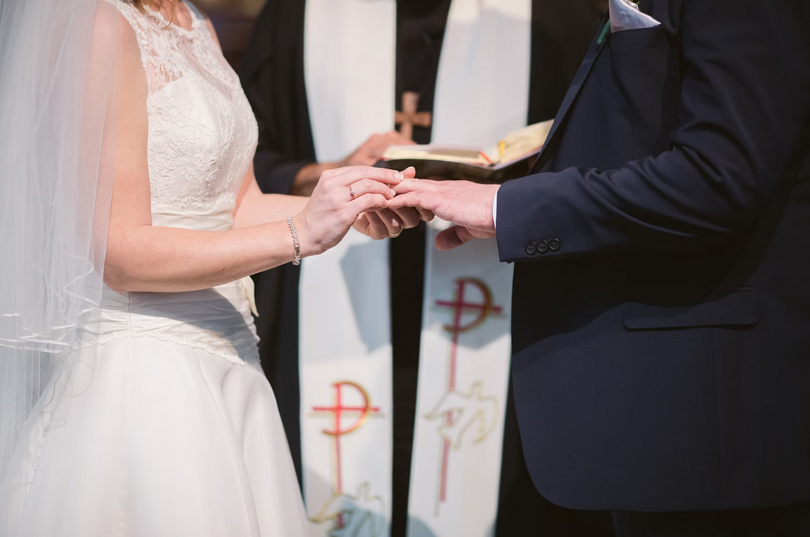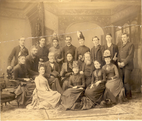"Many elderly sisters came asking, 'Can more people join the matchmaking event?'" Teacher X responded sternly, "This is a singles fellowship, not matchmaking."
Having served in singles ministry for years, Teacher X—who himself joined his church's marriage and dating ministry and later married through the church—said he has witnessed the difference between biblical teaching and so-called "Christian matchmaking. While some churches or Christian organizations host so-called "Christian matchmaking" events, he warned that such gatherings often carry strong implicit suggestions, use simplistic methods, and create spiritual risks rooted in opportunistic thinking. In practice, they may even lead to conflict and harm.
X explained that organizers often know little about participants' spiritual lives or real backgrounds, relying only on surface information to make pairings, which can easily cause misunderstanding, hurt, or even harassment later on. Both organizers and participants sometimes share a "shortcut mentality"—assuming that people are single merely because they haven't met the right one and hoping that perhaps they will "get lucky" at a matchmaking event.
According to X, this reflects the "fast-food culture" of modern society seeping into the church. Many people expect to form relationships or even rush into marriage in a short time, yet marriage is a serious covenant, not something that can stand if built on haste or fantasy. The church, he stressed, should teach single believers to pursue deeper mutual understanding rather than quick emotional involvement.
Singles Fellowship Centered on Spiritual Growth
Located in a major East China city, X's church began the marriage and singles ministry more than a decade ago during the wave of urbanization that drew many young people into the city. With leadership support and professional input, the church first launched premarital courses for couples preparing for marriage. Over time, the ministry expanded to four areas: singles fellowship, premarital counseling, marriage retreats, and couples' gatherings. Its purpose is to make Christian marriage a testimony in today's world.
The team believes that marriage should not start from man-made platforms or artificial arrangements. A relationship intended for marriage should arise from one's walk with God, learning what it means to love, and entering marriage thoughtfully and independently. Spiritual maturity, they teach, is the foundation for seeking a spouse.
Over the past decade and beyond, the church has held more than twenty rounds of singles fellowships and developed clear goals and processes. Teacher X met his spouse through this ministry and now serves as a core co-worker. He emphasized that the gatherings, often held as short retreats, are not matchmaking events but focus on discipleship and spiritual growth. The three goals are helping participants know God, know oneself, and know each other.
"In learning to love God first, you learn how to love others, even the unlovable," he said. Participants begin their mornings with Bible study and attend lectures covering biblical perspectives on marriage and life, as well as how to view mainstream values such as success and wealth.
On the foundation of knowing God, single brothers and sisters are led to know themselves. While singleness may be short compared to one's whole life, it shapes the direction of a person's life. With many Gen Z particpants this year, activities included MBTI personality tests, group debates, and reflection on family background and values. Yet X also noted, "The best way to truly know yourself is through marriage," as real relationships constantly reshape self-understanding.
As for knowing each other, he admitted that the gatherings naturally provide opportunities to meet and understand one another. Some participants got married as a result, but the team repeatedly stresses that spiritual growth and friendships should be the focus, not finding a partner. Group sharing and life stories encourage deeper spiritual understanding and accountability, especially among same-gender peers. To protect privacy, all sharing remains strictly within the retreat.
Complex Faith Backgrounds Require Greater Caution in Singles Ministry
In recent years, the makeup of attendees has grown more complex. Earlier participants were often second-generation Christians with solid church backgrounds, who naturally looked to the church for marriage guidance. But more recently, many are new believers with only one to four years of walk with Christ, or even those only loosely connected through family. Some join after broken relationships, hoping for new perspectives.
X noted that this shift signals growth in evangelism, as the proportion of new converts among singles is increasing. But it also raises challenges. Ministry workers often do not fully understand participants' backgrounds or motivations, making ministry more difficult.
Younger generations also tend to emphasize individuality and may resist biblical teaching on life and marriage values. "You can clearly see not everyone accepts what is being shared," he admitted.
Spiritual Maturity as the Basis for Marriage
From the perspective of married life, X highlighted why opportunism in choosing a partner is risky and why spiritual maturity is essential.
The church's marriage ministry is staffed by trained workers with marital experience ranging from nine to thirty-four years. They emphasize that most marital breakdowns occur because each spouse insists on their own standard. Couples who pursue maturity in Christ, however, are willing to submit to God's authority and accept biblical correction. A shared standard makes reconciliation possible.
They also stress that Christian marriage is a covenant, not a contract. A contract can be broken, but a covenant does not allow retreat. "When people realize there is no retreat, they face their problems and begin to change themselves. That is how they learn mutual growth and tolerance," X explained.
For X, the church should not rush to arrange relationships or replace personal seeking before God. Instead, it should equip believers for spiritual maturity, preparing them to embrace marriage as a holy calling.
(Teacher X is a pseudonym for safety reasons.)
Originally published by the Gospel Times
- Edited and translated by Katherine Guo












